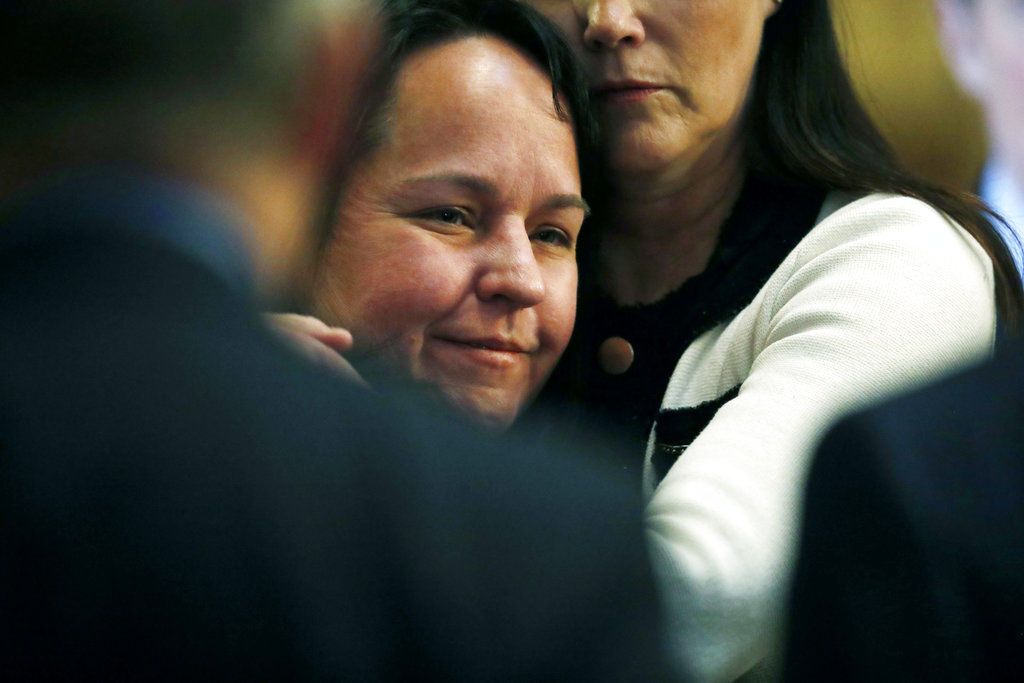Polis assures infrastructure sector of funding as he pledges to reduce transportation-related fees
The Polis administration on Thursday assured the transportation sector that plans to save Coloradans money by reducing or delaying several fees — the same revenue streams the governor and his Democratic allies approved last year to fund the state’s 10-year transportation program — will not slow down Colorado’s infrastructure projects.
State officials, in fact, said Colorado’s transportation agency, buoyed by state and federal funding, expects to spend nearly $1 billion in construction projects this year. That’s on top of the nearly $700 million the state spent last year to complete, among other things, nearly 120 projects and pave more than 600 miles of rural roads.
Gov. Jared Polis told attendees of a transportation summit organized by a coalition of business groups that the proposed fee reductions or delays won’t hit transportation funding.
“No one’s talking about taking a dime away from transportation,” he said.
The governor was specifically referring to his party’s proposal to delay the 2-cent hike in gas and diesel purchases that, under the major transportation funding law Democrats passed and he signed last year, would take effect in July, ramp up each year, and reach 8 cents per gallon in 2028. The House approved the measure along partisan lines, an action the Senate largely mirrored, although Sen. Kerry Donovan, D-Vail, balked at the bill while Sen. Kevin Priola, R-Henderson, supported it.
All told, the legislation, Senate Bill 21-260, would raise roughly $100 million in revenue in fiscal year 2023, double that amount in the next year and bring in larger amounts in later years. Analysts say the fuel fee alone would raise $59.7 million in fiscal year 2023 and $91.6 million the year after.
The same applies to his proposal to reduce vehicle registration fees and save Coloradans $11 for another year, the governor said.
“We’re not seeking for that to come out of transportation funding,” Polis said, adding the plan is to pay for it with one-time money.
The governor’s office today told Colorado Politics state general fund dollars will pick up the tab for Democrats’ fee relief package, adding the economy has roared back enough to produce sufficient revenue for the administration’s priorities.
“Colorado’s economy is roaring back, which has improved the state’s revenue forecast, allowing the Polis administration to not just invest in schools and roads, but to also cut fees and costs for hardworking Coloradan in a fiscally responsible manner,” gubernatorial spokesman Conor Cahill said in a statement. He added the spending maintains a balanced budget and still leaves “strong reserves.”
Polis and other officials have also cited the availability of a huge influx of federal funds. Colorado, for example, stands to gain billions of dollars from the federal Infrastructure Investment and Jobs Act over the next five years to fund roads, bridges, airports, and other transportation projects. States have some discretion how to spend that money.
Soaring prices of commodities has, along with spiking criminality, taken center stage at the state Capitol, where Polis and Democratic leaders have outlined an ambitious agenda to lift the economic burden on Coloradans and keep them safe from violence. The governor, who is in the final year of his term and is seeking reelection, pledged to cut taxes, reduce or waive fees, and eliminate government-imposed financial barriers to starting a business, among a host of initiatives he and Democrats said would save Coloradans money at a time of soaring energy bills this winter, the worst inflation rate hike in 40 years and a sense that crime is on the rise.
Republicans, in response, have blamed the policies enacted by Polis and his allies in the legislature and arguing they’ve made matters worse. Some of the root of the financial difficulties Coloradans face, Republicans insisted, can be traced back to the slew of fee increases the governor signed in the last few years.
Mike Kopp, who chairs A Way Forward Coalition, the group that organized Thursday’s virtual summit and which advocates for transportation funding, acknowledged the political fight over SB 21-260, the most significant transportation package to emerge out of the state Capitol in years.
Kopp’s group had invited Polis, Lew and others to update the public since the bill’s passage, saying it’s important for Coloradans to see how projects are working out and money is flowing through, particularly in a subject as complex as transportation planning and spending.
“There’s things in there that people can nitpick,” Kopp said. “But we really tried to focus on keeping the main thing the main thing.”
And that, he said, is getting the Colorado Department of Transportation the resources it needs to best position the state for a flouring future.















